Most may not know, but generating random numbers is hard. It is quite surprising because many people will think, “well, I can just come up with a random number off the top of my head!” However, randomly coming up with a number in your head, as well as other solutions to generate random numbers has fundamental flaws. And this is a big problem. Generating a fair unbiased random number is critical. In fact, random number generators are used everywhere.
The first place many would think of random numbers being useful is in games of chance. But would you be surprised if you knew that reading this article required the use of a random number generator? The website hosting this article is protected by a cryptographic key, which relies on generating a random set of values to be used for the encryption key.
Generating numbers at random is difficult. At a high level, there are two main issues with generating random numbers: predictability and bias/corruption issues.

The predictability issue for RNG can be seen in both human- and machine-generated random numbers. For example, there is a famous problem called Benford’s Law that states any random number that someone thinks about has a 30% chance of starting with the number 1. When you want to have a chance of a number being generated to be equal in percentage, then this becomes a problem. If you use a computer program to generate random numbers, you are using a structured code. This means, after multiple iterations, someone can reverse engineer the numbers to find the pattern and predict what the next number could be, especially if the code being used is weak.
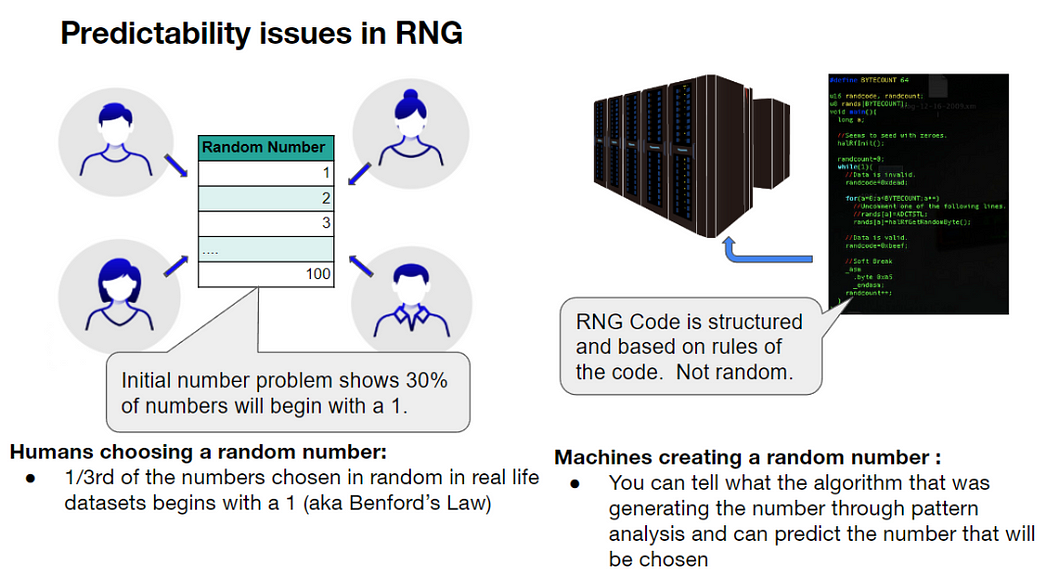
From a bias and corruption perspective, the current systems can also be gamed to give favor to someone. For instance, if a set group of people decide they will choose random numbers and run through some function to compute a random number, one person may withhold showing their number until they see what the other people have chosen. Then, once he knows the numbers of the other participants, he can choose a number that would compute the random number to his favor. From a machine generated random numbers, since most systems have a central system that is generating the numbers, anyone who has control of that system could also manipulate the numbers being generated to their favor.

So how can we create a system where it is both unpredictable and bias free? Through MPC and Partisia Blockchain, we can solve both problems. Through smart contracts, players in the system generate a random number. This random number is then privatized and sent into the PBC blockchain. A zero-knowledge computation is done, in a similar way as done through secret sharing and through a computation, a random number is revealed.

Through combining multiple players and secret sharing, developers can create a system to come up with a random number that is free from bias, incorruptible and impossible to predict. And Partisia Blockchain’s smart contract language will afford developers to customize this solution to their specific requirements.
By creating a programming language that allows for developers to use MPC in a generic way, Partisia Blockchain Foundation has made the creation of applications that can harness the power of MPC for different use cases a possibility. Partisia has been at the forefront of providing private MPC solutions since 2008. And by layering this technology on top of an interoperable and scalable blockchain, Partisia Blockchain is now paving the way for anyone to create solutions that can balance privacy and transparency to build trust.
To learn more about different use cases or partner with us for solutions, please visit partisiablockchain.com, check out our Medium articles, development documentations or email us at build@partisiablockchain.com.
In April 2023, Partisia Blockchain had an eventful month with exciting updates and developments. We welcomed Bakyt Azimkanov as the new Head of Communications, signaling a commitment to expanding its reach and global presence. The Spotlight Solutions campaign continued to showcase our MPC technology capabilities in enhancing security and trust in the blockchain industry. Partisia Hivemind Huddles was launched, providing a space for the community and team to discuss a variety of topics and encourage collaboration. And we distributed the third quarter staking rewards. Finally, we also shared several tech updates, including the launch of the ETH price oracle on testnet and the enabling of multiple inputs in an MPC contract, among other updates.
Last month, we were thrilled to share some exciting organizational highlights. Partisia Blockchain Foundation recently welcomed Bakyt Azimkanov as our new Head of Communications, marking a significant addition to our leadership team. Bakyt is an accomplished professional with years of experience in strategic communications, branding, and press outreach programs across blockchain, financial services, and technology. Before joining us, he served as the Head of Communications at the Cardano Foundation. In his new role, he will oversee the development and implementation of a comprehensive communication strategy aimed at increasing awareness and driving adoption of our blockchain technology with cutting-edge multiparty computation capabilities.
We were delighted to have Bakyt, along with another excellent addition to Tiago Serôdio, Head of Community, attend Consensus 2023 in Austin, Texas, to represent Partisia Blockchain. Our team was thrilled to meet new and old friends in the community and engage in fruitful discussions about the future of blockchain technology. We had a great time networking and learning about the latest trends and innovations in the industry and were delighted to see so much enthusiasm for our MPC blockchain technology. If you missed us at the event, please reach out to us and let’s connect. We look forward to seeing you at the next blockchain event.
Throughout April, we continued to highlight our Solutions Spotlight campaign, including Secret Surveys, Preventing Front Running, Privatized Settlement Layers, and Data Sharing showcasing how Partisia Blockchain’s MPC technology can enhance security and trust in the blockchain industry. Our Head of Community, Tiago Serôdio, and Head of Developer Relations, Bruce Ahn, led a series of Spotlight AMAs and Q&As to educate our community on how our MPC technology can solve real world problems.
Last month, we were thrilled to launch Partisia Hivemind Huddles! Our inaugural monthly Hivemind Huddle took place on Friday, 21 April 2023, providing a space for our community and team to come together and discuss a variety of topics, while encouraging everyone to participate with their ideas and thoughts. This informal and welcoming forum is designed to promote open communication and collaboration. For the first session, we focused on answering recent questions from our community through an AMA format. For those who could not attend, we will hold a second session that will recap the first session and address any follow-up questions. Stay tuned for updates on the next Hivemind Huddle, and mark your calendars to join us for lively discussions and brainstorming sessions.
Our ecosystem is growing! Our partners have been working hard and making progress building on our chain. Our sales team also has been busy and are working through more than 40 new leads and prospects. We have also seen higher interest in our blockchain and, as a result, have received multiple pitch ideas and we are busy working to get them onboarded and begin development. Please be on the lookout for our ecosystem spotlight in May for more details.
Third quarter rewards distributed. We have distributed our bootstrapping rewards for the third distribution quarter (December 2022 — February 2023). This is also our first distribution for our community stakers and more than 650,000 MPC tokens were distributed. Even better, we expect our next quarter rewards to be over one million! So, if you have not staked your tokens, please read this guide and put your tokens to work.
Website • Twitter • Discord • Telegram • LinkedIn • Facebook • Instagram • GitLab • Medium • YouTube
Trust is the basis for any relationship. Whether it is between you and your friends, or between one company working with another, even with governments sharing information with each other. Without trust, society cannot exist. Every type of a relationship requires some type of trust that is built through time.
But what is trust? And how does one go about establishing it with another entity? Trust is earned through a give-and-take between parties and demonstrated pattern of reliability. It is also relative, as everyone has a different level of risk appetite. A balance that is relative to the amount of risk the person is willing to take against the amount of reliability the other party has demonstrated in the past.
So how does this balance take place?
Clearly, if no one is willing to share or demonstrate anything about themselves, trust cannot be established. There has to be some level of vulnerability to even begin the initial stages of establishing trust. But at the same time, complete and full transparency also does not help establish trust. And this is because almost all relationships start off mutually distrustful. Trust is something earned. If given to someone arbitrary, that person could use that trust against you.
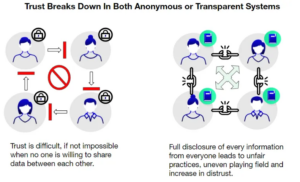
And in a way this balance of privacy and transparency to establish trust has been tipped in favor of one side to another throughout history. How many times have you or someone you know been burned by giving trust to someone who–knowingly or unknowingly–betrayed it? How many deals are broken between companies? How many government secrets have been compromised through leaks? Building trust is a gradual process, where one party shares something in hopes that the other party shares something of equal value.
But what if there was a way to share information without sharing information?
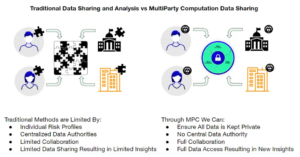
As we reviewed in other articles, multiparty computation allows for the computing of data even if the owner does not share the details around it. And in the example of sharing of data, this means any mutually distrustful parties can collectively allow the use of their data without sharing the details of data itself.
What does this mean in practice? At a high level, this means you can now reduce the weight of risk in the balance of establishing trust. Because you no longer have to expose your private data, the risk of that data being used against you is lowered. And this means you no longer require the same heavy weight for demonstrated reliability that you would need on the other side of the trust scale.
This is a game changer on many levels. Trust is the fundamental basis for any relationships between entities. With MPC, we now have the opportunity to change how this can be played.
In the example below, let’s say we have two financial companies that are competitors. They have a lot of secrets they would like to keep internal, but they do business with each other as a part of their overall practice. As a result of their business, there are many mutual clients. If there was a suspicious activity in one of their clients, having a single set of data they can analyze may not be enough. But what if both companies could share the use of their data together for forensic analysis without sharing the details of the data itself? This may lead to a far more comprehensive analysis.
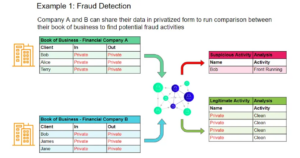
Another example is where multiple companies need to validate meeting of certain regulatory or compliance goals. But to compute the data, it requires exposing private information. Through MPC and Partisia Blockchain, a company will be able to validate meeting regulatory goals without exposing their data to the public.
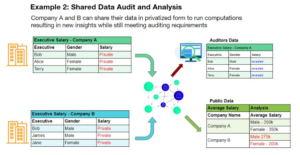
These are very simple examples of how companies can still work together without revealing their private data. And we have quite a variety of projects building on Partisia Blockchain that takes advantage of this new way of doing business.
CyberPeace Institute is working with Partisia Blockchain to help NGOs combat the issue of malware and ransomware by allowing NGOs to privately work with other parties who may be facing similar attacks. This allows NGOs to work together with others without reputation impact or exposing information that may create other vulnerabilities in their system.
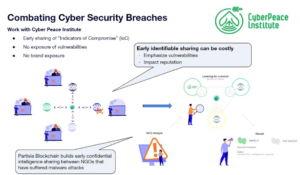
Monadi is working on helping companies comply with CSRD regulations that will impact over 50,000 companies in the EU. By 2025, companies will need to validate that they are meeting certain SDG goals, with the first goal being able to certify that there is no gender pay gap in their executives’ compensations. As the regulation matures, Monadi will be in a good position to help companies certify other SDG requirements without the need for the company to expose private data.
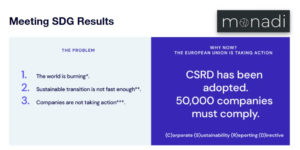
With a growing number of partners and integrators looking to solve the issue of trust, Partisia Blockchain is well positioned to help provide the solutions we need–whether it is to address the transparency in blockchains or to solve existing problems outside the blockchain space.
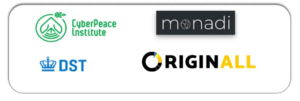
For additional insights on this use case, come and watch our Q&A session we did on this topic.
By creating a programming language that allows for developers to use MPC in a generic way, Partisia Blockchain Foundation has made the creation of applications that can harness the power of MPC for different use cases a possibility. Partisia has been at the forefront of providing private MPC solutions since 2008. And by layering this technology on top of an interoperable and scalable blockchain, Partisia Blockchain is now paving the way for anyone to create solutions that can balance privacy and transparency to build trust.
To learn more about different use cases or partner with us for solutions, please visit partisiablockchain.com, check out our Medium articles, development documentations or email us at build@partisiablockchain.com.
Ledgers are the primary ways settlements are recorded. The first double bookkeeping ledger system was recorded in use as far back as the 1300s. It is still the de-facto system used today to record transactions between entities.
Fast forward to 2008. Satoshi Nakamoto (pseudonym) was frustrated with the corruption due to the lack of transparency and centralized control of the traditional system. He proposed a transparent distributed ledger system that was immutable as a system of recording transactions. Thus Bitcoin was born.
But with all new systems, there is always room for improvements.
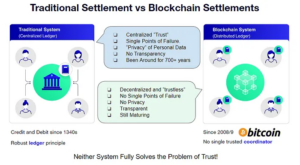
As discussed in our previous articles, full transparency does not solve the problem of building trust. In fact, privacy is a requirement in any trust relationship. For example, nobody would trust a credit card provider that revealed every purchase cardholders made just by someone having their credit card number. In a traditional blockchain space, every transaction is written in a public ledger. It would only require matching a wallet address to a name to see the full history of their transactions.
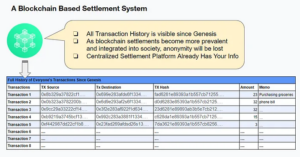
How can you have a blockchain that privatizes transactions and has enough flexibility to analyze and compute the data? Through integrating a proven technology into a scalable and interoperable blockchain.
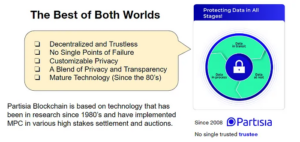
Developers can pick and choose which part of the data in the blockchain needs to be private and which can be public. All thanks to the Partisia Blockchain’s programmable MPC. A layer of governance can be enabled around the private data to allow for computation and access to select individuals. Those who access the data can also be audited transparently.
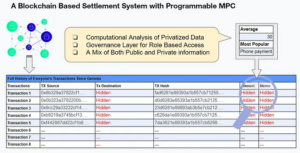
Now, even if someone has your credit card details, they will not be able to see your purchase history and your spending. If needed, a governance model can be created to ensure auditability and traceability to the system.
The importance is evident in our partnership with the International Committee of the Red Cross (ICRC). We partnered with the ICRC to build out a program for distributing aid through blockchain. One of their key requirements was privacy of the aid recipients. As they are a very unique organization, one of their key principles is in confidentiality and bilateral dialogue. The ICRC mainly operates in conflict zones and lack of privacy can mean life or death.
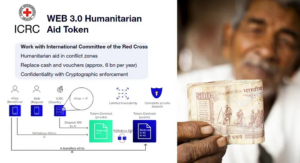
ICRC was able to solve their key challenge of privatizing the transactions of the stable tokens in the ecosystem thanks to Partisia Blockchain’s MPC. As shown above, the deposit of the funds from ICRC is kept private. As a result, transfers between the users are anonymous. To learn more, please watch our video of the overview of the solution here.
As blockchains become more prevalent, the need for privacy will continue to grow and take center stage. Various projects are already being built with private settlements in mind. We continue to speak with many organizations who prioritize the need for privacy in a blockchain solution.
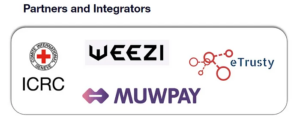
For additional insights on this use case, come and watch our Q&A session we did on this topic.
By creating a programming language that allows for developers to use MPC in a generic way, Partisia Blockchain Foundation has made the creation of applications that can harness the power of MPC for different use cases a possibility. Partisia has been at the forefront of providing private MPC solutions since 2008. And by layering this technology on top of an interoperable and scalable blockchain, Partisia Blockchain is now paving the way for anyone to create solutions that can balance privacy and transparency to build trust.
To learn more about different use cases or partner with us for solutions, please visit partisiablockchain.com, check out our Medium articles, development documentations or email me at bruce.ahn@partisiablockchain.com.
ZÜRICH, 12 April 2023. Partisia Blockchain Foundation proudly announces the appointment of Bakyt Azimkanov, an accomplished and award-winning professional, as the Head of Communications, effective immediately. This strategic hire supports the organization’s expansion plans and underscores its commitment to increasing its voice and raising its awareness worldwide.
A former Head of Communications at the Cardano Foundation, Bakyt joins the organization with decades of experience in strategic communications, integrated public relations campaigns, branding, and press outreach programs across blockchain, financial services, and technology.
In his new role, Bakyt will develop and oversee the implementation of a communications strategy to raise Partisia Blockchain Foundation’s profile and drive adoption of the fourth generation blockchain, which features unparalleled multiparty computation technology.
As a trusted counselor to the leadership team, Bakyt will provide expert advice on unified communications initiatives to increase awareness and share of voice. He will also advise on leadership positioning strategy, execution tactics, and implementation methodology.
Kurt Nielsen, President of Partisia Blockchain Foundation, expressed his excitement for the appointment, saying, “We are thrilled to enlist the rich expertise and visionary leadership of Bakyt, who boasts a remarkable array of proficiencies and extensive experience in steering value-driven purpose-led communications initiatives. We are confident that his unique skill set will be instrumental in bolstering the standing of Partisia Blockchain within the global blockchain arena. With unwavering conviction, we anticipate his invaluable contributions in advancing our ethos and perpetual metamorphic objectives.”
Before joining Partisia Blockchain Foundation, Bakyt held numerous senior leadership positions at major global organizations, including leading transformational programs at the Cardano Foundation. He led its positioning overhaul, ICAD-nominated brand refresh and built its brand, marketing, community management and communications functions.
Outside the blockchain industry, Bakyt previously led the global media relations and social media at EY (Ernst & Young), a professional services organization, focusing on strategy and transactions, namely mergers and acquisitions, divestments, and private equity, where he played a pivotal role in securing and maintaining a number one share of voice in the media. Bakyt is also one of the founding partners of Syyx, a Web3 full-suite marketing and communications boutique set up by former Cardano leaders.
Bakyt is a trained journalist with a Master of Arts degree in Business and Finance Journalism from City University (United Kingdom), a second Master of Arts degree in Media Studies and Communication from the University of Aarhus (Denmark), and a Bachelor of Arts degree in Journalism and Public Relations from the American University of Central Asia (Kyrgyz Republic).
Partisia Blockchain Foundation is honored to welcome Bakyt Azimkanov to its leadership team and looks forward to his contribution in elevating the company’s communications function to new heights.
About Partisia Blockchain Foundation: Partisia Blockchain Foundation brings unparalleled opportunities by empowering privacy-preserving, interoperable and sustainable innovation for fairness and transparency. It fuels the most secure and efficient networks to solve global problems. Distilled with more than 30 years of rigorous research, Partisia Blockchain future-proofs solutions, solves tomorrow’s challenges by powering fair, secure, distribution of benefits. While preserving privacy and confidentiality, it brings accountable, transparent and decentralized governance. Learn more: www.PartisiaBlockchain.com
Stay updated: Website • Twitter • Discord • Telegram • LinkedIn • Facebook • Instagram • GitLab • Medium • YouTube
In a traditional asset trading platform, front running is defined as the illegal practice of placing a trade based on advanced non-public knowledge of an upcoming trade which can impact prices. As shown in the example below, a broker can take advantage of a situation when he or she gets a large order by one of their clients. Since they know this order will impact the price of the asset, they place their own personal order ahead of their client’s order. Then, they place the client order, raising the stock price. Once this is done they will sell their own shares to profit off their clients order.
Another term used often is insider trading, which is based on a very similar practice of using information only they have access to in order to gain an unfair advantage over others.
In the Web3 space, everything is transparent and, ironically, revealing too much information can also create these situations. An example of this is front running on a decentralized exchange (dex) that you may have already heard of. This type of a front running is possible through the combination of having total transparency in the blockchain along with how Ethereum (and many other blockchains) prioritize transactions in a node’s mempool.
In this particular example, an attacker (usually a bot) scans the mempool to see a particular scenario that they can take advantage of. Scanning the mempool, they look for an opportunity to insert in a bid at a lower price but higher gas than another large bid already in the mempool.
Once their bid completes, they wait for the larger order to go through, raising the price of the asset. Then they place a sell order at a higher price than the buy order he placed ahead of the larger order, and pockets the difference. All this is happening in a blink of an eye, making it impossible for any normal person to be able to recognize they are being taken advantage of.
But what if we could make the orders private? This prevents the attacker from being able to read the auction details in the mempool, and making the bot unable to identify a situation to take advantage of.
Through multiparty computation (MPC), details can be kept private while still computing the winner. In the situation of this dex, the results of the prices are not revealed until the bids are completed, ensuring that attackers cannot gain any advantageous information ahead of time.
The team in Partisia has already provided solutions to solve this issue in multiple scenarios. From governments to OTC trading platforms, they have been trusted to run high stakes auctions in different levels and through enabling this technology on a blockchain, we are giving everyone the power to solve the problem of ensuring integrity in the bidding process.
For additional insights on this use case, we recommend viewing our Q&A session on this topic.
By creating a programming language that allows for developers to use MPC in a generic way, Partisia Blockchain Foundation has made the creation of applications that can harness the power of MPC for different use cases a possibility. Partisia has been at the forefront of providing private MPC solutions since 2008. And by layering this technology on top of an interoperable and scalable blockchain, Partisia Blockchain is now paving the way for anyone to create solutions that can balance privacy and transparency to build trust.
To learn more about different use cases or partner with us for solutions, please visit partisiablockchain.com, check out our Medium articles, development documentations or email me at bruce.ahn@partisiablockchain.com
Your opinion matters. It matters so much that the global online data market estimate is to be over US$270 billion dollars, all focused around buying and selling of your data to the highest bidders. It is a very complex web of transactions that ferry your data from one place to another and many times, your data is used in ways you never realized could be used for. From Cambridge Analytics’ controversial use of data to TikTok’s alleged aggressive data harvesting, there is a large market for your information and how it is used is very unclear.
The current Web2 market for surveys is in the exchange of your data. This means your opinion is collected, filtered, analyzed, sold and bought. The data may be collected anonymously, or it may be tied to your identity. Either way, this data is collected and managed by a centralized system, which has control over the data they purchased. There is also the ever growing concern of bots and AI scripts that automate and duplicate fake data leading to data integrity issues.

One of the ways a decentralized blockchain can help change the landscape of the survey market is through dissolving the centralized control problem. Because the data can be made public, and with no single point of control of the data, you can be sure that the data can reside on-chain and has no central ownership or control. However, this can create problems with privacy. All data is now public and this creates two issues.
A unified public and private smart contract, like the one Partisia Blockchain supports, enables the best of both worlds and solves the two issues above, where you now have a decentralized blockchain that eliminates any controlling entity while still being able to privatize your data. Not only does this retain the data marketplace but redefines it in a way where the user now has control over the data.

The online survey industry is large and is continuously growing. And this is because surveys hold a lot of valuable data. As reviewed in our earlier article on privatized voting, we use multiparty computation (MPC) on the blockchain to hide your data on-chain, but still allow for computing of the data.

While the private voting use case reviewed a very simple computation on who the winner of an election was, Partisia Blockchain’s programming language allows full algebraic equations to be used to calculate any number of computations using the hidden data. This means not only being able to compute on a single category, but also combine results of the computation from multiple categories.

This change in privacy of your survey data creates a new change in how the data marketplace can be viewed. By allowing the survey participants ownership of their data, but still allowing for the computation of it, the marketplace of the data has now shifted from buying and selling of your data to buying and selling of the “use of your data”. You now still hold ownership of the data and you are now selling the use of your data while still keeping your data private. This paradigm shift creates new opportunities for a different marketplace where you are not just selling your data one time, but rather allow for the possibility of both updating of the data in real time as well as being rewarded each time your data is used. And through privatized authentication, the data quality improves as well leading to better accurate analysis.

For additional insights on this use case, we recommend viewing our Q&A session.
By creating a programming language that allows for developers to use MPC in a generic way, Partisia Blockchain has made the creation of applications that can harness the power of MPC for different use cases a possibility. Partisia has been at the forefront of providing private MPC solutions since 2008. And by layering this technology on top of an interoperable and scalable blockchain, Partisia Blockchain is now paving the way for anyone to create solutions that can balance privacy and transparency to build trust.
To learn more about different use cases or partner with us for solutions, please visit partisiablockchain.com, check out our Medium articles, development documentations or email us at build@partisiablockchain.com.
As the first quarter of 2023 draws to a close, Partisia Blockchain is celebrating a successful start to the year. Our team participated in the renowned Paris Blockchain Week, where we showcased our latest solutions, including our revolutionary private voting technology. Additionally, we celebrated International Women’s Day with our Paris Hackathon winner, Thousand Faces, a community-driven investment platform that provides inclusion and accessibility for female and diverse founders. We are committed to supporting Thousand Faces’ goals and are thrilled to witness our network being utilized to address societal challenges. We also welcomed our new Head of Community, Tiago Serôdio, who will provide expert guidance on scaling and diversifying our community. At Partisia Blockchain, we remain committed to driving innovation, empowering our community, and delivering cutting-edge solutions.
We are delighted to announce the appointment of Tiago Serôdio as the Head of Community at Partisia Blockchain. With over 10 years of experience in building and running communities, Tiago’s appointment underlines our commitment to engaging our community and achieving our growth objectives. He brings a wealth of expertise in marketing campaigns and community management from his notable work at Cardano. We are excited to have Tiago on board and look forward to collaborating with him to scale and diversify our community. Additionally, we are thrilled to share that our team and collective skillset is expanding, with more Web3 professionals set to join. Stay tuned for more updates!
First and foremost, we were happy to meet our community members in Paris at the end of the month. Visitors of our booth during the Paris Blockchain Week were treated to exclusive merchandise and met with our delegation. Our community members were very supportive and active during the voting for the inaugural Paris Blockchain Week Awards. This afforded us to showcase one of our key solutions — private voting. Thousands have cast their votes and had an opportunity to experience our zero-knowledge voting. Therefore, we start our Solutions Spotlight campaign with a focus on private voting. Each week we will highlight one of our solutions and our new Head of Community, Tiago Serôdio, will lead a series of Spotlight AMAs and Q&As. The first one took place on 30 March 2023 focusing on private voting. The next ones will focus on secret surveys (6 April 2023), front running (13 April 2023) and privatized settlement layer (20 April 2023). Stay tuned!
In March, development work was mostly focused on improvements to key infrastructure functions. From fixing bugs to improving various invocations, we have been continuing to improve upon existing functionality.
In April, we plan to launch our first version of our Eth pricing Oracle on our testnet. This is an important milestone for our mainnet where BYOC transfers will now accurately reflect actual prices. This will both benefit our node operators to get more accurate fee distributions on their BYOC rewards, as well as allow for more accurate transferability on our Hermes bridge.
Website • Twitter • Discord • Telegram • LinkedIn • Facebook • Instagram • GitLab • Medium • YouTube
ZÜRICH, 29 March 2023. Partisia Blockchain Foundation announces the appointment of Tiago Fernandes Serôdio as the Head of Community, effective immediately. This strategic move underlines the fourth generation blockchain’s firm commitment to optimizing community engagement and aligning with growth objectives. His appointment is a testament to Partisia Blockchain’s pledge to quality leadership and top-notch talent acquisition.
Tiago brings over 10 years of experience building and running communities, as well as marketing campaigns, including his notable work at the Cardano Foundation where he designed and implemented the flagship Ambassador Program, expanded its global reach and introduced the first self-governance program.
In his new role at Partisia Blockchain, Tiago will collaborate with the senior leadership team to provide expert guidance on scaling and diversifying the community. He will focus on implementing a community engagement strategy that will enhance the management, growth, and diversification of the community, with an eye on future adoption and use cases. Tiago is poised to streamline the community management function and set on a path to further success.
Kurt Nielsen, President of Partisia Blockchain Foundation, is confident that Tiago’s appointment will take the community to new heights. He remarked, “Tiago’s extensive skills and expertise will serve as a catalyst for Partisia Blockchain’s growth by reinforcing our community and pivoting focus towards adoption and use cases. With Tiago’s valuable insights, we look forward to expanding and diversifying our community profile, paving the way for a brighter and more prosperous future.”
Before joining Partisia Blockchain, Tiago held several senior management positions at various organizations, including Zilliqa, HUMAN Protocol and Occam Group, where he implemented and refined community-driven initiatives. He was instrumental in turning less known altcoin to Top Five market cap in 2017 as part of the original Dash team. Tiago is also one of the founding partners of Syyx, a Web3 marketing agency built by former Cardano ecosystem executives and domain experts.
Tiago’s distinguished academic credentials speak to his deep commitment to professional development. He holds a Master of Arts degree in Clinical Neuropsychology from the University Institute of Maia (Portugal) and an Audio Engineering certification from the SAE Institute of Technology in Barcelona (Spain). He is currently pursuing his Master of Science degree in Blockchain and Business Applications from the prestigious Polytechnic University of Catalonia (Spain).
Partisia Blockchain is privileged to have Tiago Serôdio as the Head of Community and looks forward to his contributions to growth and success. His appointment is a significant milestone in the journey towards achieving ambitious goals and continuing to serve as a leading fourth generation blockchain.
About Partisia Blockchain Foundation: Partisia Blockchain brings unparalleled opportunities by empowering privacy-preserving, interoperable and sustainable innovation for fairness and transparency. It fuels the most secure and efficient networks to solve global problems. Distilled with more than 30 years of rigorous research, Partisia Blockchain future-proofs solutions, solves tomorrow’s challenges by powering fair, secure, distribution of benefits. While preserving privacy and confidentiality, it brings accountable, transparent and decentralized governance. Learn more: www.PartisiaBlockchain.com
Stay updated: Website • Twitter • Discord • Telegram • LinkedIn • Facebook • Instagram • GitLab • Medium • YouTube